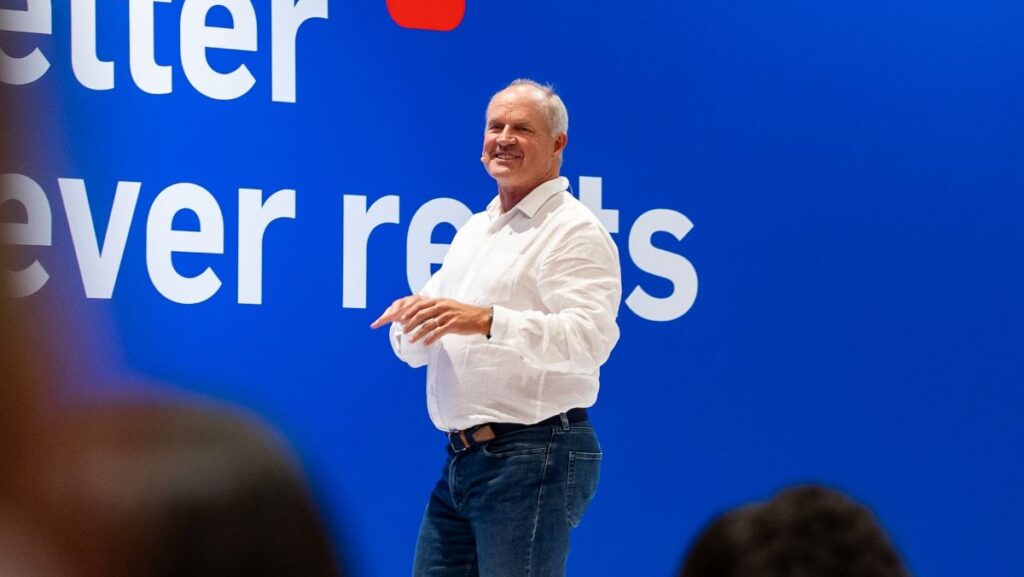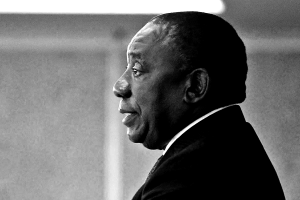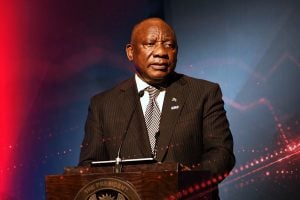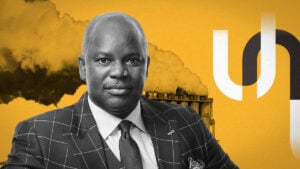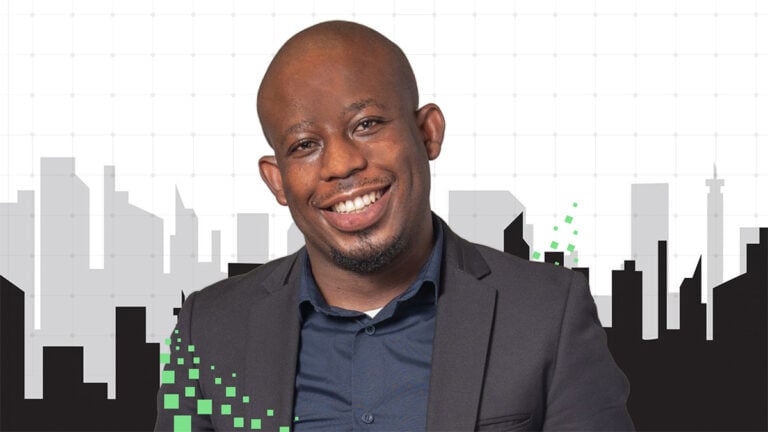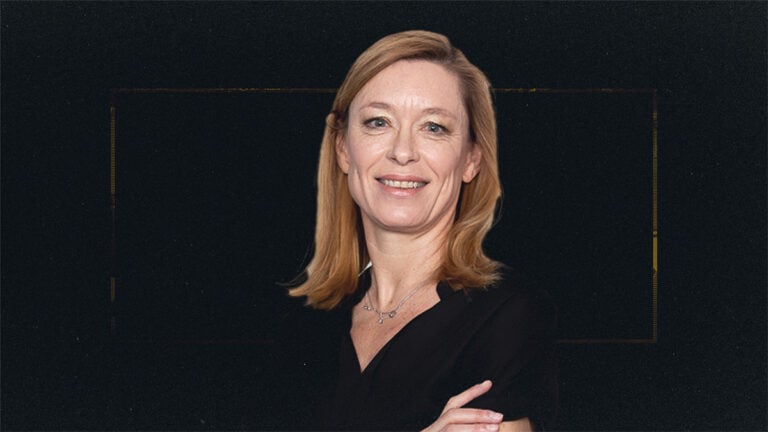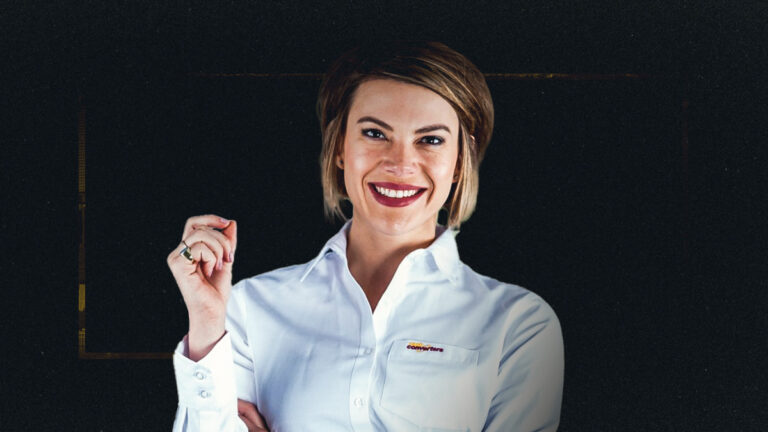End of an era for Capitec CEO Gerrie Fourie
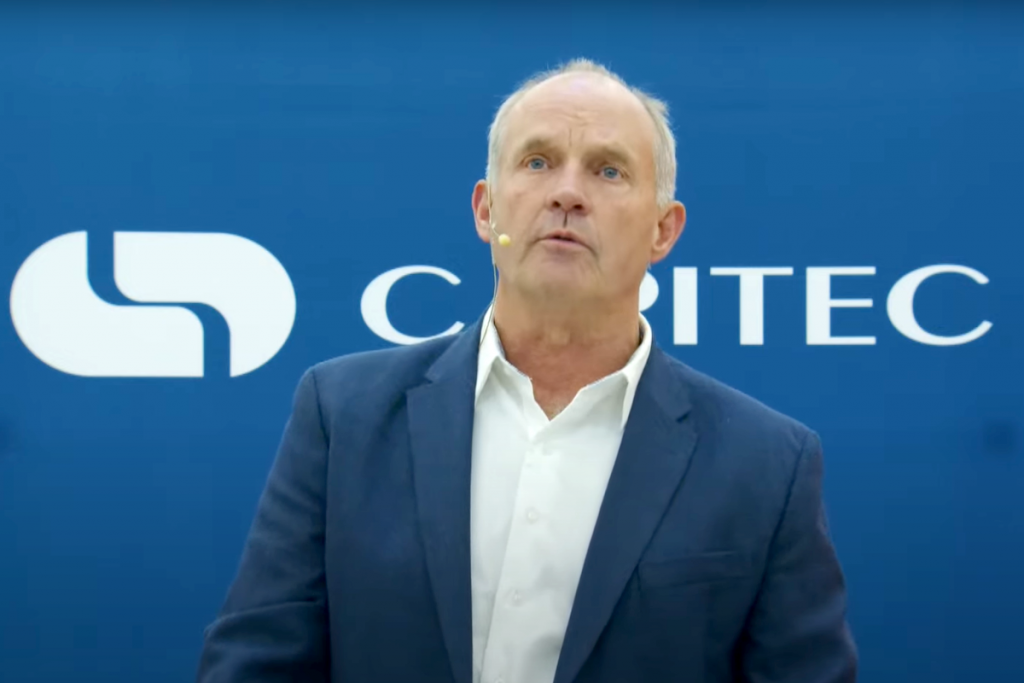
Capitec CEO Gerrie Fourie is retiring from his role later this year, but the seasoned business leader is not done with the bank that he says is part of his DNA.
Fourie will retire early as group chief executive after the Annual General Meeting on 18 July 2025, with Retail Banking lead Graham Lee taking over.
Fourie has been a member of the Capitec executive management team for the last 25 years and has overseen the bank’s large-scale growth.
After becoming CEO in 2014, the bank grew from 5 million largely low-income customers to a retail giant of close to 25 million customers.
It expanded from predominantly offering micro-lending and basic retail banking services to a fully diversified digital bank that now offers business banking and insurance products.
Speaking to journalists, Fourie said that he will stay on at Capitec for another year to assist the incoming leadership team, which includes former African Bank CEO Basani Maluleke taking over Lee’s job.
Fourie said that Capitec is in his DNA, but he is retiring before hitting Capitec’s 65-year-old retirement age (he is 61) due to the stress that the job entails.
He hopes to join the Capitec board, but this is more in his medium- to long-term plans, with a period of rest coming first.
The executive said he plans to travel as his post-CEO positioning will require a much lower time commitment.
However, he will not completely step away from the business space, noting that he is already involved in a few smaller businesses that are not banking-related. He plans to help entrepreneurs with their growth strategies.
He is also a co-owner of a game farm, which he said already operates like a business and requires a large amount of work.
Since he does not constantly need to go into the office, he will spend a larger amount of time at his home office. With his family still living in the Western Cape, he will split his time between Stellenbosch and Hermanus.
What South Africa needs to do to be successful
Fourie has recently been embroiled in controversy after claiming that South Africa’s true unemployment rate was closer to 10% and not the 33% figure reported by Stats SA.
He said that the informal economy is far larger than Stats SA takes into account. The government agency was quick to clarify that it considers informal workers in its calculations.
Despite the controversy, Fourie said that the debacle did not stress him and was happy that it formed a debate on what South Africa needs to do to improve unemployment.
He stressed that South Africa’s one objective should be to grow the economy, with the country’s GDP growth muddling below 1% in 2023 and 2024, with 2025 not expected to be much better.
Considering that South Africa’s population grows at about 1.5% per year, the latest figures point to a per capita recession.
He said that igniting South Africa’s potential is not found within the formal sector and government, where several initiatives aimed at improving growth have already failed.
Fourie added that South Africa needs to make the informal economy larger, as this is required to unlock the nation’s potential.
With its extensive retail network and its expansion into business banking, Capitec is one of the most prominent companies with a significant presence in the informal economy.
